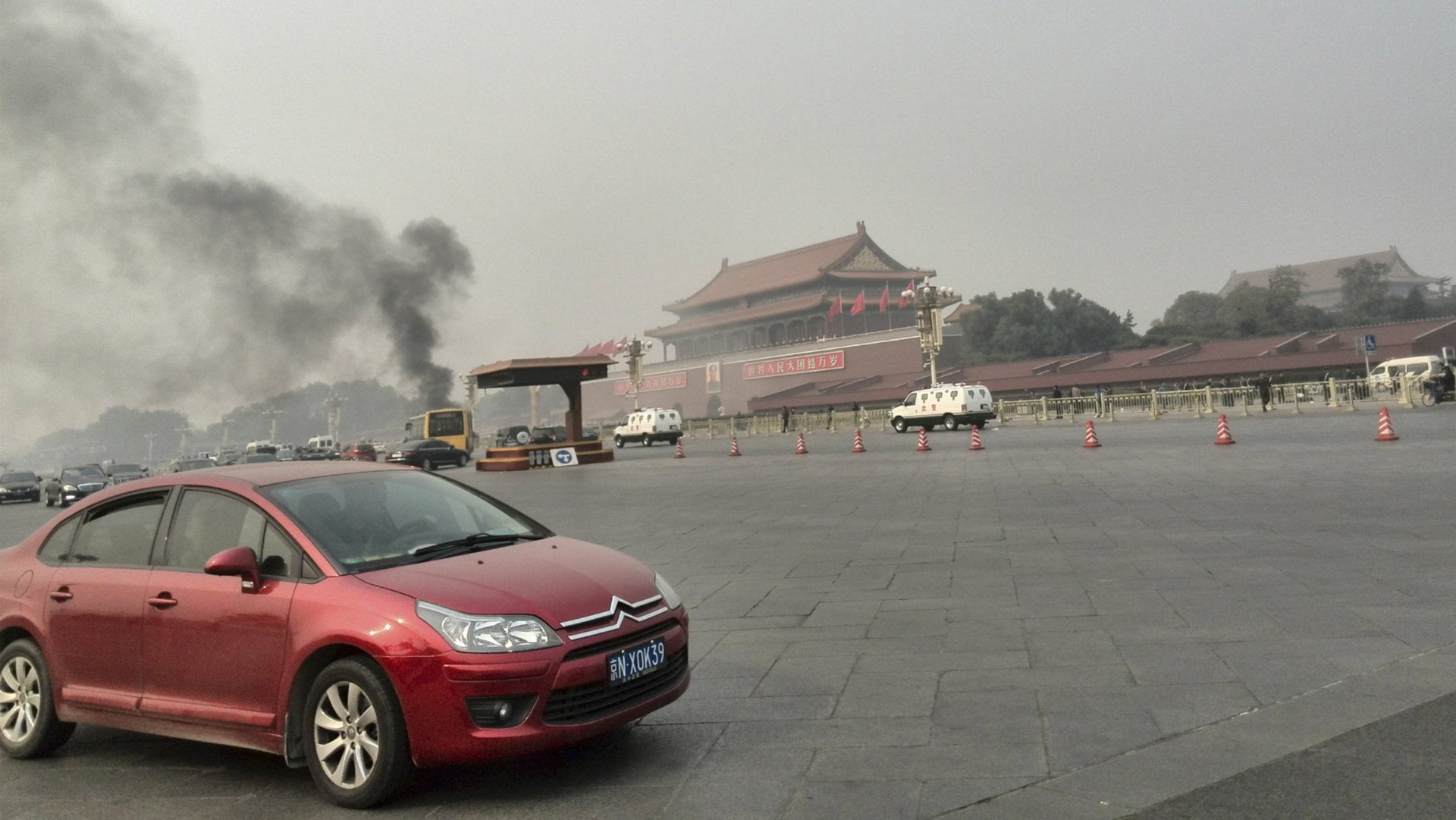Beijing’s response to Tiananmen attack could divide China even further
Chinese authorities have detained five people believed to be from Xinjiang, China’s unstable, massive western region, in connection with this week’s Tiananmen Square explosion, which security forces say was a ”carefully planned, organized and premeditated” terrorist attack.


Chinese authorities have detained five people believed to be from Xinjiang, China’s unstable, massive western region, in connection with this week’s Tiananmen Square explosion, which security forces say was a ”carefully planned, organized and premeditated” terrorist attack.
The violence highlights the fact that China is practically divided in two, with its heavily populated and industrialized south and east in sharp contrast to the sparsely-populated, minority-dominated north and west areas of Xinjiang, Tibet and Inner Mongolia, where clashes with authorities have increased in recent years. The Tiananmen Square attack raises fears that Beijing’s long-held policy of repressing ethnic minorities in the north and west could make southern and eastern China an increasingly attractive target for terrorist attacks.
Taken together, the three outlying regions make up 42% of China’s overall land mass and are home to a huge amount of its natural resources, including most of its rare earths and enormous petrochemical reserves.
Activists and academics argue that the Han Chinese-dominated Communist Party’s heavy-handed attempts to control and homogenize Xinjiang have fueled, not prevented, violence and extremism—a warning that applies to Tibet and Inner Mongolia as well. “The use of violent means happens because all other outlets for expression are gone,” Ilham Tohti, an Uighur economist and critic of Chinese policy in Xinjiang told Reuters. “Uighurs do not have any representation, they have no means of self-expression,” he said.
Xinjiang’s economy, for example, is dominated by the government-controlled oil industry, a resource the south and east desperately needs, and the Xinjiang Production and Construction Corps., a quasi-military agency, writes Philip Potter, a professor at the University of Michigan’s Ford School of Public Policy in a paper on terrorism in the region. “The economy is based primarily on resource extraction and redistribution rather than the vibrant production” generally associated with China, he writes an “expensive proposition,” that “reinforces the structural divides” between west and east.
Friction between Beijing and the regions to the north and west have been growing as the country’s economy booms, and Beijing continues to send Han Chinese westward and north to tap natural resources and cement the region’s economic ties to Beijing. More than 120 Tibetans have self-immolated since 2009 to protest Beijing’s policies there, clashes between ethnic Mongolian herders and Han police are frequent in the north and dozens have been killed in Xinjiang this year during protests and raids.
If previous incidents are any guide, the Tiananmen explosion will result in a severe crackdown by Chinese security forces against Uighurs in Xinjiang and beyond. But Potter—who has a Q&A with the New York Times that is worth reading in full—has noted that the more China clamps down on eastern China, the stronger the incentive for insurgents to carry out terrorist attacks in major Chinese cities like Beijing—and for Uighur extremists to establish closer links with more sophisticated and violent Muslim insurgent groups in neighboring countries like Pakistan:
The ‘two Chinas’ approach incentivizes the cross-border linkages between militants … It also puts a premium on the ability to take the fight to eastern China where the government’s capacity to disrupt it is lower and the rewards of an attack are higher. Thus, the more Beijing tries to ‘bottle up’ grievances in the west, the higher the rewards for groups who can strike in the east
Today, Chinese officials linked the Tiananmen attack to the East Turkestan Islamic Movement, a extremist Uighur group seeking independence from China. Human rights activists have questioned the official version of the Tiananmen attack, and say it could be a pretext for Beijing to send more troops to the already militarized area.
There’s little chance one, much less all three of these regions could ever secede. Even the creation of homegrown independence movements powerful enough to mount a real battle with Beijing is a longshot. But if China continues to with its heavy-handed economic and military control of the north and west, there may be more incidents like the one this week in Tiananmen Square.